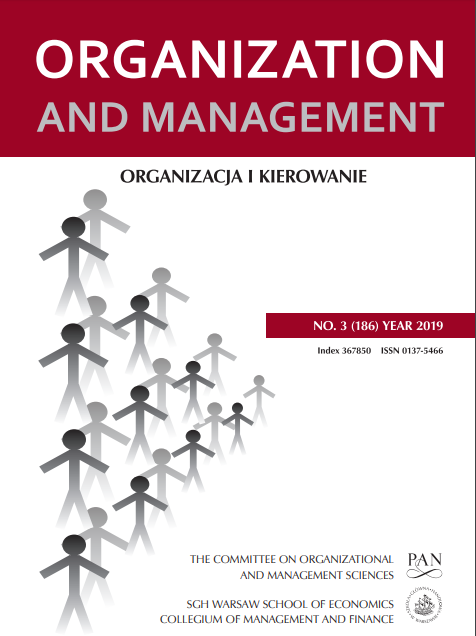Preface by Editor-in-Chief
prof. dr hab. Maciej Urbaniak
By releasing the last issue of our magazine this year, we hope you will read it in the festive atmosphere of the upcoming Christmas and New Year. We hope that this reading will inspire you, and especially potential authors, to new ideas for interesting scientific texts that we will be able to publish in our journal.
In the first article Bogdan Nogalski and Przemysław Niewiadomski made an attempt to assess the level of technological maturity that implies the implementation of an imitation strategy. To achieve this goal, the authors were carried out the studies among manufacturers operating in the agricultural machinery sector. In carrying out the research they used method of literature studies, expertise, a creative discussion, participant observation as well as providing opinions with the use of a self-assessment questionnaire. The results of these studies indicate that the agricultural machinery sector is dominated by enterprises, which inspired by innovations and observing a pioneer, focus on competitive, efficient and mature imitation.
Marek Jabłoński and Bernard Ziębicki have presented the essence of operation of automation of accounting processes solutions and their benefits as well as hazards, in the light of research performed so far. To realize this goal the authors used consulting companies’ research reports and the results of surveys with employees of Cracow shared services centers. Based on the results of these research one could state that automation does change the nature of work of a contemporary finance specialist, reducing routine works, in place of which they can concentrate on strategic tasks, interactions with stakeholders, formulating conclusions on the basis of analysis of information, in order to improve business performance. Technological progress and
automated processes give professionals more time to act in the strategic area and become true business partners.
In her article Izabela Bednarska-Wnuk tried to identify the conceptualization of the essence of the notion of entrepreneurial mobility, to determine its dimensions and to show the relationship with strategic entrepreneurship, the theory of resources and the theory of entrepreneurial behavior. The obtained conclusions authorize to state that entrepreneurial mobility undertaken by enterprises may also be, thanks to possessed resources, competencies and the use of opportunities in the environment an essential moderating factor in maintaining and/or achieving a competitive advantage.
In the next article Marek Jabłoński made attempt to investigate occupational tasks and wage inequality over last decade in the one of Poland’s municipal companies. In particular, the study, conducted in the reference to data from the 2009 and 2018 year, aimed to identify the changing share of particular types of jobs according to the adopted classification and to analyze individual pay scales from the perspective of the identified types of positions. The research procedures were based on document analysis, structured interviews, team work methods, and classification technique.The results indicate a decrease in the share of routine in favor of non-routine jobs.
In the last article Katarzyna Magdalena Rozbejko dealt with a problem related to flexibility and efficiency in the applied management style on the example of managers in the banking sector.Analyzing the problem, she conducted the survey with managers in this sector. The author positively verified the hypotheses which assume that firstly managers in the banking sector are characterized by flexibility in applying the management style and secondly, the greater the flexibility in using management styles the higher the subjective assessment of the efficiency of managing people.
On the occasion of Christmas and New Year, I would like to convey to you the wishes of many successes in professional and personal life, and I also have great hope for cooperation in the atmosphere of the widest possible internationalization of our journal.
Enjoy your reading,
Maciej Urbaniak
Opublikowane: 2019-12-13
